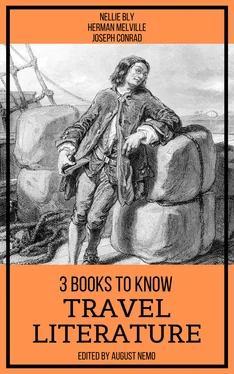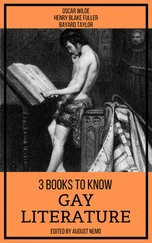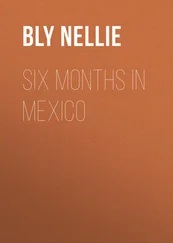“Homie’s “ passage was paid, but according to the rules of the ship, “Homie” was confined to the care of the butcher, much to the disgust of his master and mistress. “Homie” had not been accustomed to such harsh measures before, and the only streaks of happiness that came into his life were when permission was obtained for him to come on deck. Permission was granted with a proviso that if “Homie” barked he was to be taken instantly below. I fear that many hours of “Homie’s “ imprisonment might be laid at our door, for he knew how to dig most frantically when anyone said, “Rats,” and when he did dig, he usually punctuated his attempt with short, crisp barks. With dismay we daily noted “Homie’s ” decrease in flesh. We marveled at his losing weight while confined in the butcher’s quarters, and at last put it down to sea-sickness, which he, like some of the passengers, confined to the secrecy of his cabin. Towards the end of the voyage, when we were all served with sausage and Hamburger steak, there would be many whispered inquiries as to whether “Homie” had been seen that day. So anxious became those whispers that sometimes I thought they were rather tinged with a personal concern that was not wholly friendship for the wee dog.
When everything else grew tiresome, Captain Albers would always invent something to amuse us. He made a practice every evening after dinner, of putting the same number of lines on a card as there were gentlemen at the table. One of these lines he would mark and then partly folding the card over so as to prevent the marked line from being seen. would pass it around for the men to take their choice.
After all had marked, the card was passed to the Captain, and we would wait breathlessly for the verdict. The gentleman whose name had been marked paid for the cigars or cordials for the others.
Many were the discussions about the erroneous impression entertained by most foreigners about Americans and America. Some one remarked that the majority of people in foreign lands were not able to tell where the United States is.
“There are plenty of people who think the United States is one little island, with a few houses on it,” Captain Albers said. “Once there was delivered at my house, near the wharf, in Hoboken, a letter from Germany, addressed to,
‘CAPTAIN ALBERS,
FIRST HOUSE IN AMERICA.’”
“I got one from Germany once,” said the most bashful man at the table, his face flushing at the sound of his own voice, “addressed to,
‘HOBOKEN, OPPOSITE THE UNITED STATES.’”
While at luncheon on the 21st of November, some one called out that we were in sight of land. The way everyone left the table and rushed on deck was surely not surpassed by the companions of Columbus when they discovered America. I can not give any good reason for it, but I know that I looked at the first point of bleak land with more interest than I would have bestowed on the most beautiful bit of scenery in the world.
We had not been long in sight of land until the decks began to fill with dazed-looking, wan-faced people. It was just as if we had taken on new passengers. We could not realize that they were from New York and had been enjoying (?) a season of seclusion since leaving that port.
Dinner that evening was a very pleasant affair. Extra courses had been prepared in honor of those that were leaving at Southampton. I had not known one of the passengers when I left New York seven days before, but I realized, now that I was so soon to separate from them, that I regretted the parting very much.
Had I been traveling with a companion I should not have felt this so keenly, for naturally then I would have had less time to cultivate the acquaintance of my fellow passengers.
They were all so kind to me that I should have been the most ungrateful of women had I not felt that I was leaving friends behind. Captain Albers had served many years as commander of a ship in Eastern seas, and he cautioned me as to the manner in which I should take care of my health. As the time grew shorter for my stay on the Augusta Victoria, some teased me gently as to the outcome of my attempt to beat the record made by a hero of fiction, and I found myself forcing a false gaiety that helped to hide my real fears.
The passengers on the Augusta Victoria all stayed up to see us off. We sat on deck talking or nervously walking about until half-past two in the morning. Then some one said the tugboat had come alongside, and we all rushed over to see it. After it was made secure we went down to the lower deck to see who would come on and to get some news from land.
One man was very much concerned about my making the trip to London alone. He thought as it was so late, or rather so early, that the London correspondent, who was to have met me, would not put in an appearance.
“I shall most certainly leave the ship here and see you safely to London, if no one comes to meet you,” he protested, despite my assurances that I felt perfectly able to get along safely without an escort.
More for his sake than my own, I watched the men come on board, and tried to pick out the one that had been sent to meet me. Several of them were passing us in a line just as a gentleman made some remark about my trip around the world. A tall young man overheard the remark, and turning at the foot of the stairs, looked down at me with a hesitating smile.
“Nellie Bly?” he asked inquiringly.
“Yes,” I replied, holding out my hand, which he gave a cordial grasp, meanwhile asking if I had enjoyed my trip, and if my baggage was ready to be transferred.
The man who had been so fearful of my traveling to London alone, took occasion to draw the correspondent into conversation. Afterwards he came to me and said with the most satisfied look upon his face:
“He is all right. If he had not been so, I should have gone to London with you anyway. I can rest satisfied now for he will take care of you.”
I went away with a warm feeling in my heart for that kindly man who would have sacrificed his own comfort to insure the safety of an unprotected girl.
A few warm hand clasps, and interchanging of good wishes, a little dry feeling in the throat, a little strained pulsation of the heart, a little hurried run down the perpendicular plank to the other passengers who were going to London, and then the tug cast off from the ship, and we drifted away in the dark.
Southampton to Jules Verne’s .
––––––––

“M R. & MRS. JULES VERNE have sent a special letter asking that if possible you will stop to see them,” the London correspondent said to me, as we were on our way to the wharf.
“Oh, how I should like to see them!” I exclaimed, adding in the same breath, “Isn’t it hard to be forced to decline such a treat?”
“If you are willing to go without sleep and rest for two nights, I think it can be done,” he said quietly.
“Safely? Without making me miss any connections? If so, don’t think about sleep or rest.”
“It depends on our getting a train out of here to-night. All the regular trains until morning have left, and unless they decide to run a special mail train for the delayed mails, we will have to stay here all night and that will not give us time to see Verne. We shall see when we land what they will decide to do.”
The boat that was landing us left much to be desired in the way of comfort. The only cabin seemed to be the hull, but it was filled with mail and baggage and lighted by a lamp with a smoked globe. I did not see any place to sit down, so we all stood on deck, shivering in the damp, chilly air, and looking in the gray fog like uneasy spirits.
Читать дальше













